There is no advanced sign-up for workshops. Workshops will be filled on a first-come first-served basis.
VSS Workshop for PhD Students and Postdocs:
|
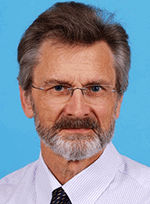 David H. Foster, University of Manchester David H. Foster, University of Manchester
David H. Foster is Professor of Vision Systems at the University of Manchester. His research interests are in human vision, mathematical and statistical modelling, and applications to machine and biological vision systems. He has served as journal editor for over thirty years, most recently as editor-in-chief of Vision Research. His book, A Concise Guide to Communication in Science & Engineering, which is based on courses given to graduate students and early-career researchers, is due to be published by Oxford University Press in 2017. |
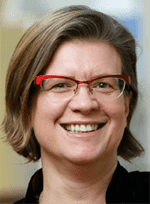 Isabel Gauthier, Vanderbilt University Isabel Gauthier, Vanderbilt University
Isabel Gauthier is David K Wilson Professor of Psychology at Vanderbilt University. She received her PhD from Yale in 1998 and is the recipient of several awards, including the Troland award from the National Academy of Sciences. She heads the Object Perception Laboratory, where investigators use behavioral and brain imaging methods to study perceptual expertise, object and face recognition, and individual differences in vision. She has served as associate editor at several journals, is currently outgoing editor of the Journal of Experimental Psychology: General and incoming Editor of the Journal of Experimental Psychology: Human Perception and Performance. |
 Cathleen Moore, University of Iowa Cathleen Moore, University of Iowa
Cathleen Moore is a Professor of Psychology at the University of Iowa, where she heads up the Iowa Attention and Perception Lab. Her research focuses on visual attention and perceptual organization. She has been on the Governing Board of the Psychonomic Society since 2010, having served as Chair in 2016. She was Editor of Psychonomic Bulletin & Review from 2011-14, and Associate Editor of the same journal from 2002-05. She has written and read a lot of reviews over the years. |
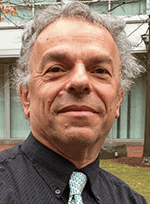 Jeremy Wolfe, Harvard Medical School Jeremy Wolfe, Harvard Medical School
Jeremy Wolfe is Professor of Ophthalmology and Professor of Radiology at Harvard Medical School. He is Director of the Visual Attention Lab at Brigham and Women’s Hospital. His research focuses on visual search and visual attention with a particular interest in socially important search tasks in areas such as medical image perception (e.g. cancer screening), security (e.g. baggage screening), and intelligence. In the world of reviewing he has served as Editor of Attention, Perception, and Psychophysics and is the founding Editor of the new Psychonomic Society, open access journal; Cognitive Research: Principles and Implications. He will be moderating this session. |
VSS Workshop for PhD Students and Postdocs:
|
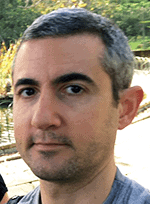 Kurt Debono, SR Research Kurt Debono, SR Research
Kurt works in eye tracking technology with SR Research Ltd in Brighton UK. He got his PhD in vision science at Giessen University and made his transition from academia five years ago. |
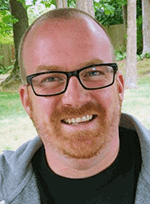 Kevin J. MacKenzie, Oculus Kevin J. MacKenzie, Oculus
Kevin J. MacKenzie is a research scientist at Oculus Research, a multi-disciplinary research team within Oculus. He conducted his PhD work in Laurie Wilcox’s lab at York University’s Centre for Vision Research and held a post-doctoral fellowship at Bangor University, 2008 through 2012 under the tutelage of Simon Watt. Prior to Oculus, he was part of the Microsoft HoloLens team, holding positions as a human factors engineer and user experience researcher. |
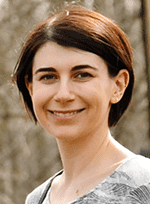 Alex Smolyanskaya, Stitch Fix Alex Smolyanskaya, Stitch Fix
Alex is a data scientist at Stitch Fix in San Francisco, where she works on forecasting demand and macro client behavior. She got her PhD in Neuroscience at Harvard and was a postdoc in Nicole Rust’s lab at the University of Pennsylvania. She made the transition from academia to data science two years ago via Insight Data Science, a post-doctoral fellowship program specifically designed to prepare scientists for interviews and careers in industry. |
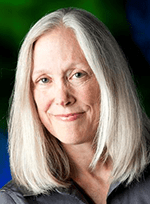 Cheri Wiggs, National Eye Institute Cheri Wiggs, National Eye Institute
Cheri Wiggs serves as a Program Director at the National Eye Institute (of the National Institutes of Health). She oversees extramural funding through three programs — Perception & Psychophysics, Myopia & Refractive Errors, and Low Vision & Blindness Rehabilitation. She received her PhD from Georgetown University in 1991 and came to the NIH as a researcher in the Laboratory of Brain and Cognition. She made her jump to the administrative side of science in 1998 as a Scientific Review Officer. She currently represents the NEI on several NIH coordinating committees (including BRAIN, Behavioral and Social Sciences Research, Medical Rehabilitation Research) and was appointed to the NEI Director’s Audacious Goals Initiative Working Group. |
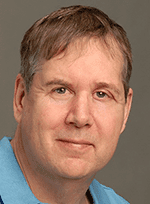 David Brainard, University of Pennsylvania David Brainard, University of Pennsylvania
David H. Brainard is the RRL Professor of Psychology at the University of Pennsylvania. He is a fellow of the Optical Society, ARVO and the Association for Psychological Science. At present, he directs Penn’s Vision Research Center, co-directs Penn’s Computational Neuroscience Initiative, co-directs Penn’s NSF funded certificate program in Complex Scene Perception, is on the Board of the Vision Sciences Society, and is a member of the editorial board of the Journal of Vision. His research interests focus on human color vision, which he studies both experimentally and through computational modeling of visual processing. He will be moderating this session. |
